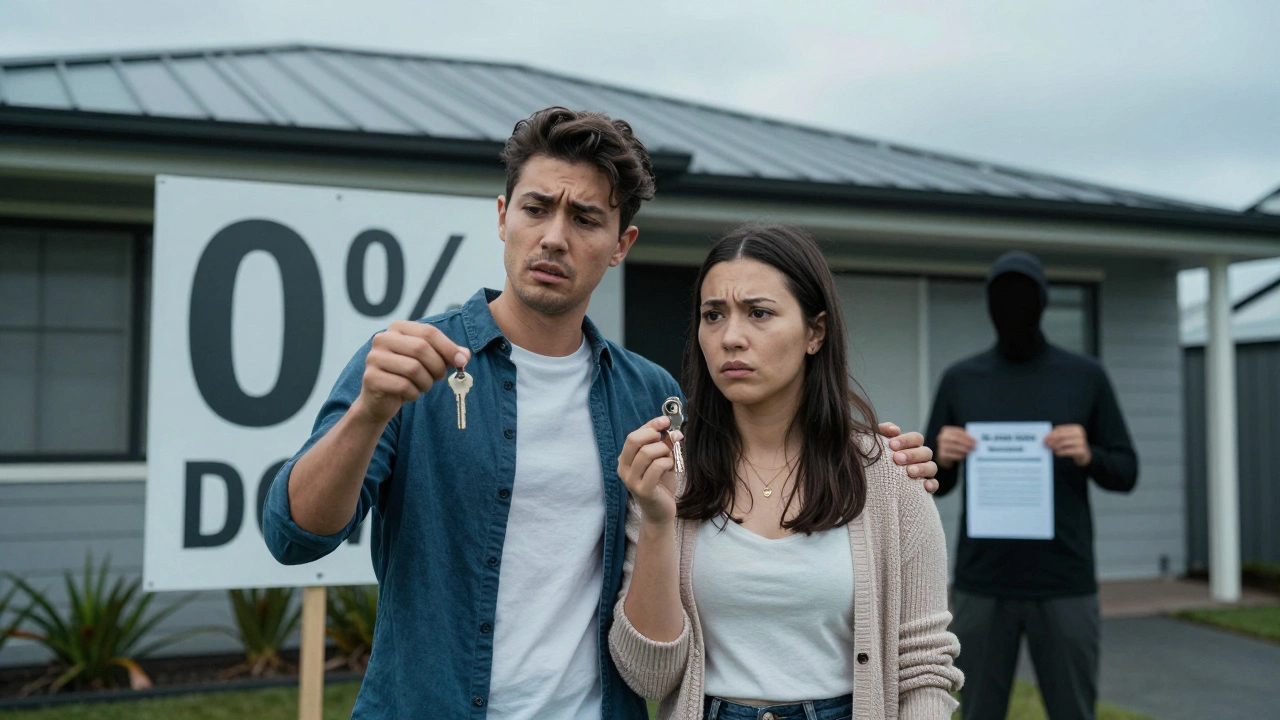Buying a house with no money down might seem tempting, but it’s risky for first-time buyers in New Zealand. Learn why saving even a little makes all the difference - and what real alternatives exist.
Zero Down Payment: Buy a Home Without Money Down
Ever looked at a house and thought, "I can’t afford the down payment"? You’re not alone. Many first‑time buyers think a big cash pile is required, but there are real ways to purchase a home with little or no money down.
What Zero Down Options Exist
Zero down doesn’t mean you get a free house. It means a lender or a local program covers the upfront cost. Common options include:
- VA loans – available to eligible veterans and active‑duty service members. They often require 0% down and have competitive interest rates.
- USDA loans – designed for rural and some suburban areas. If the property qualifies, you can finance 100% of the purchase price.
- State or city grants – many places run down‑payment assistance programs. For example, North Carolina offers a down‑payment grant that can cover the entire upfront amount for qualified buyers.
- Zero‑down conventional loans – some lenders offer special programs that let qualifying buyers skip the down payment, usually in exchange for private mortgage insurance (PMI) or a higher interest rate.
Each program has its own rules about credit score, income, and property type. The key is to match your situation with the right fit.
Practical Steps to Get Started
1. Check your credit. A higher score gives you more options and better rates. Pull a free report, fix any errors, and pay down high balances.
2. Explore local assistance. Visit your city council or state housing website. Search for terms like "down payment grant" or "first‑time buyer assistance".
3. Talk to a mortgage broker. A broker knows which lenders offer zero‑down products and can run a quick pre‑approval to see what you qualify for.
4. Calculate total costs. Even with 0% down, you’ll still pay closing fees, inspection costs, and possibly PMI. Use an online calculator to know the full picture.
5. Get your documents ready. Lenders will ask for tax returns, pay stubs, bank statements, and proof of any assistance you receive. Having everything organized speeds up approval.
6. Make a realistic offer. Look at comparable sales, set a price you can afford, and be ready to negotiate. Zero‑down buyers often need to be flexible on timing.
7. Stay patient. The paperwork for grants and special loans can take longer than a standard mortgage. Keep in touch with your lender and assist with any extra requests promptly.
When you combine a zero‑down loan with a solid budget, you can move into a home sooner than you think. Remember, the goal isn’t just to buy cheap – it’s to buy smart.
Ready to start? Grab a notebook, list your income and debts, and call a local mortgage broker today. The zero‑down path might be the shortcut you needed to become a homeowner.
Curious about the credit score you need to buy a house with zero down? Here’s an in-depth, people-first guide for 2025 on qualifying for a no money down mortgage.

